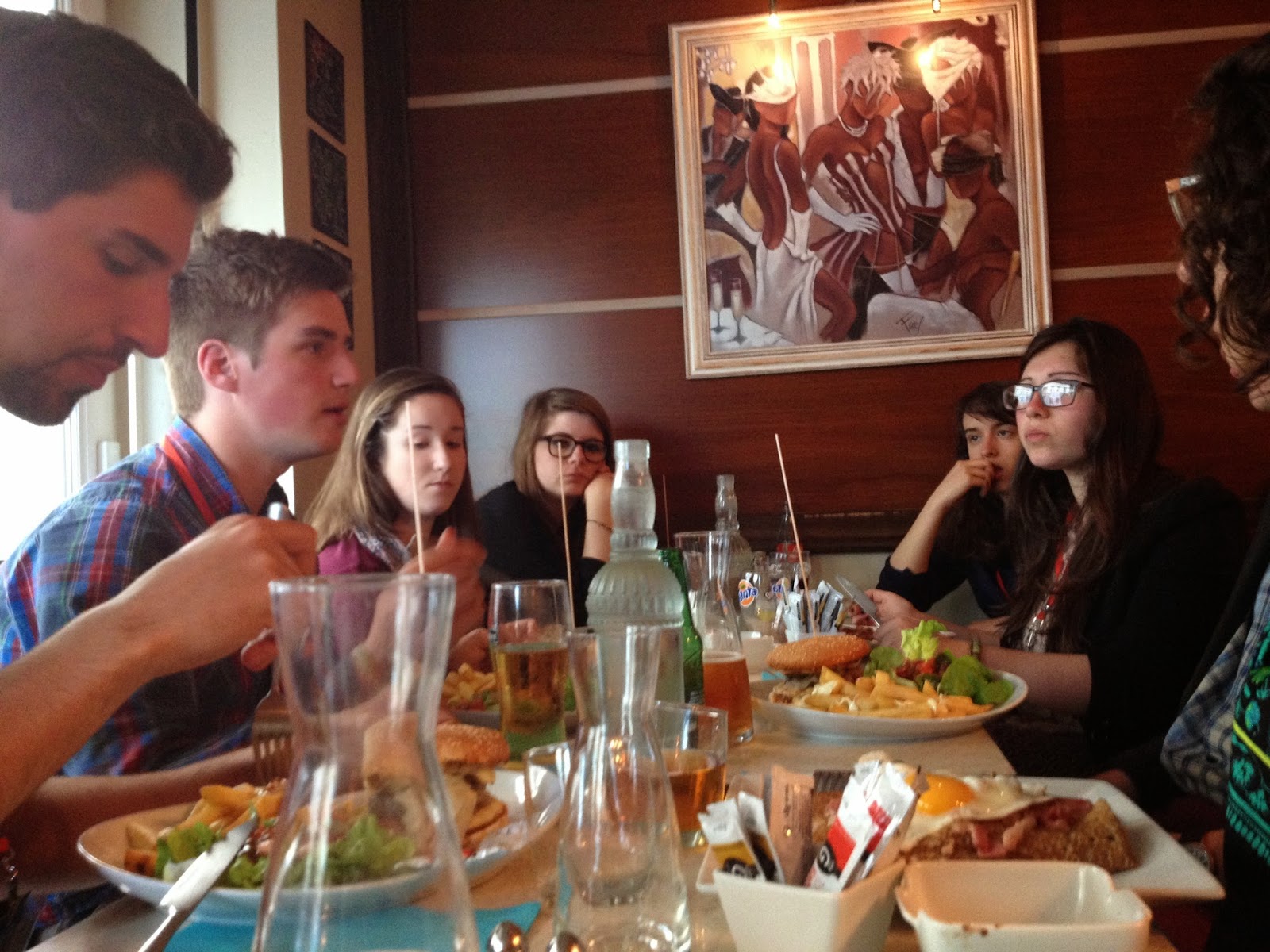Saturday, May 31, 2014
Day 3: Conference at Mémorial de Caen (Building Our Common History)
Today's
conference in Mémorial de Caen aimed to show us how parliament conducts itself
and to see what our ideas and thoughts were about questions in regards to D-Day
and if Europe has a common history and furthermore if one is needed in order to
unite Europe.
-"What does Battle of Normandy represent for the European peoples? Is there a symbolic role to this event?" To broadly summarize everyone's viewpoints, it is possible for nations to work together against an immediate threat to human rights/democracy, D-Day united many European nations to accomplish a common goal, for the USA this event is one of the events in history that directly tied the USA to multiple European countries at the same time, and most of all D-Day was the turning point in WWII (which I also believe).
Another interesting point made is that it is important to
think of Europe in a modern way and not just based on history as we've seen
very recently in elections (for example in France).
-"What role has History played in the construction of
the European peoples; what part does nationalism represent in each European
country's historical records? Do we truly have common roots?"
-"Do we truly need a common European History in order to build a cultural and political basis for the further development of Europe?" I believe a common history is needed, and the Battle of Normandy can be part of that common history. Moving forward, D-Day should be presented as an example of how nations can gather together in one place, put their differences aside, and ultimately plan and execute solutions that all nations agree upon. Right now, this is extremely hard to achieve, but I believe that Europe can be completely united within the coming decades if a common history is firmly established.
-"Do we truly need a common European History in order to build a cultural and political basis for the further development of Europe?" I believe a common history is needed, and the Battle of Normandy can be part of that common history. Moving forward, D-Day should be presented as an example of how nations can gather together in one place, put their differences aside, and ultimately plan and execute solutions that all nations agree upon. Right now, this is extremely hard to achieve, but I believe that Europe can be completely united within the coming decades if a common history is firmly established.
Overall, I think this was the best point made, "What's
in history is story. The nation is an invention made by Europe; Europe is a
construction, a story to tell. The question is what stories does Europe want to
remember and want to forget. Who exactly gets to tell the story? Every country
has its personal history, as such we need to be able to limit outside
influences and biases when telling the history, for example, of World War II
from our perspective."
Subscribe to:
Posts (Atom)

























































